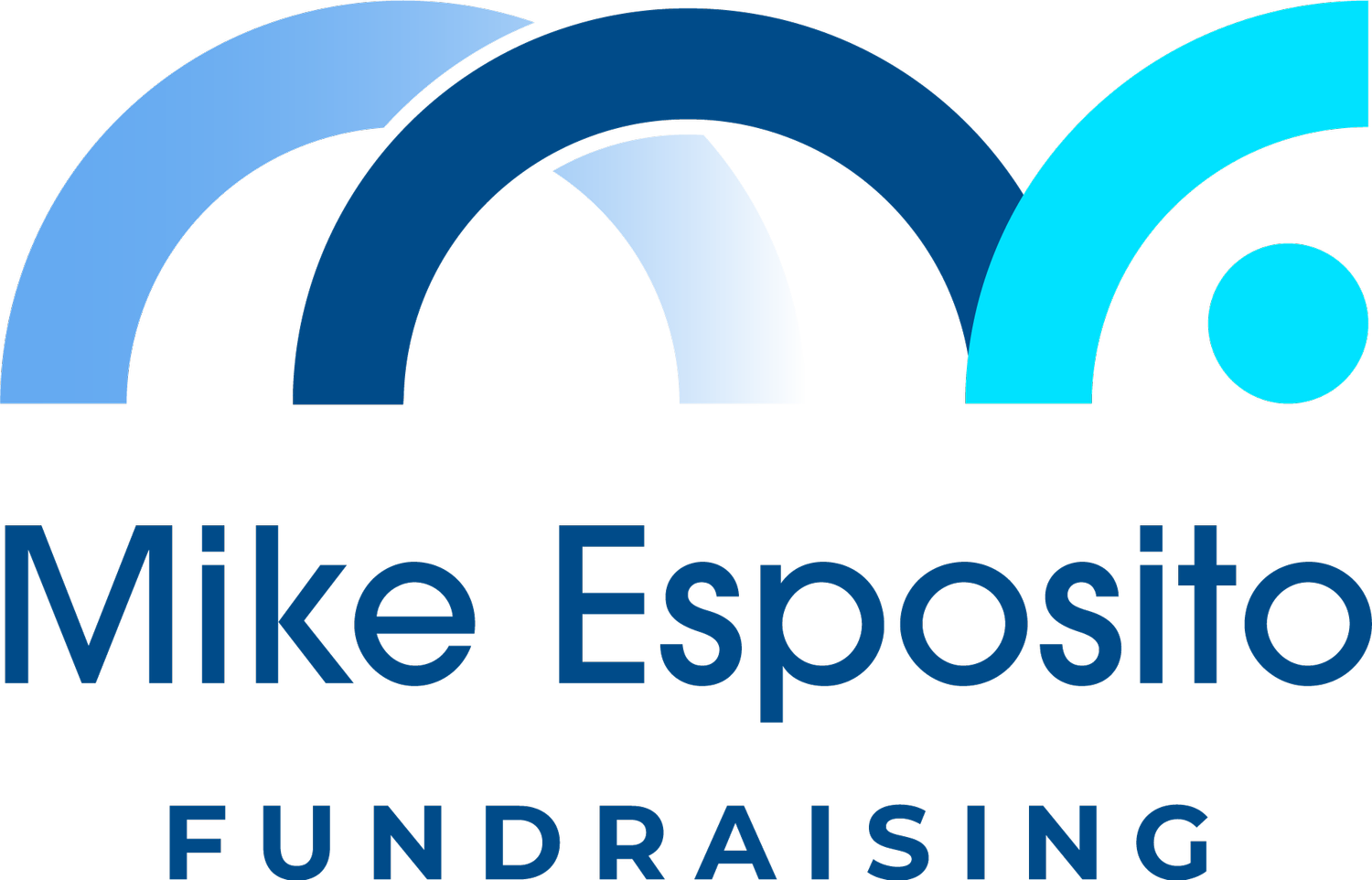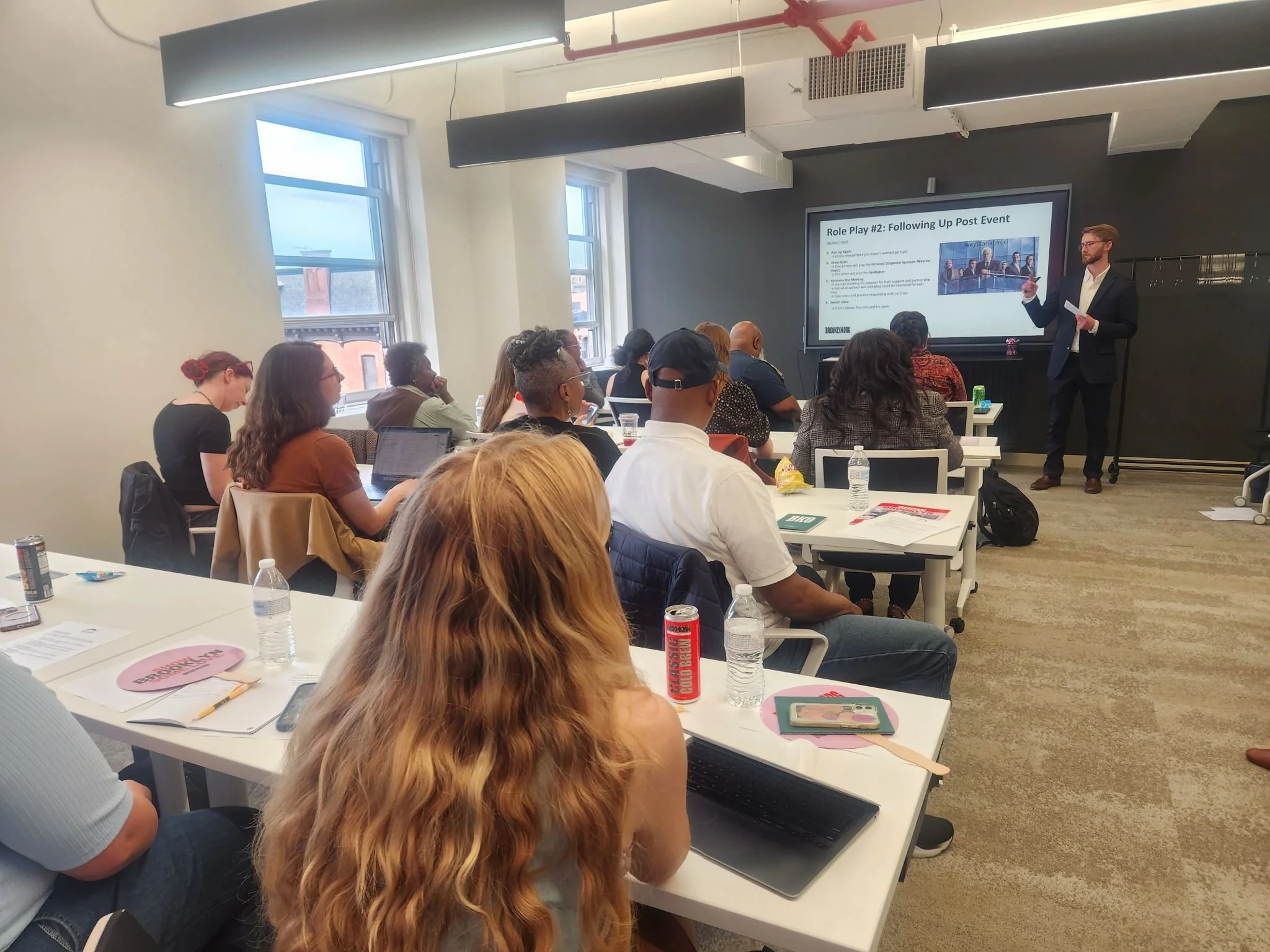What Is Fundraising Coaching, and How Can It Transform Your Nonprofit?
Fundraising Coach Shaking Hand with Executive Director after a Presentation
By: Sarah Pita and Mike Esposito, CFRE
For most people, asking for money is deeply uncomfortable– even when it’s for a meaningful, worthwhile cause. And yet, if you work in the nonprofit sector, this is something you'll probably have to do at some point. If you're a founder, an executive director, development person, or board member, it's something you will definitely have to do.
So how do you learn to do it right, so that you are well prepared, comfortable, and consistently successful? This is where working with a skilled and experienced fundraising coach can really help you.
In this article, we'll explore:
What is a fundraising coach?
A fundraising coach is a consultant you hire to work with you on leveling up your fundraising. They will have substantial experience fundraising and a comprehensive knowledge of fundraising best practices – what works and what is ethical. Services can include:
Analyzing your current fundraising picture. This includes examining donor retention rates, screening existing donors to identify untapped philanthropic potential, identifying new funders to approach, working on messaging, and practicing the actual act of asking for a donation.
Working with you to develop a comprehensive plan for fundraising that takes into account what you are doing now and how you will grow. This is a roadmap for success, and your coach will ensure you have the skills you need as you set out on that road.
Helping you build and sustain the relationships that will grow your organization through a major gifts strategy or legacy giving strategy.
Serving as a thought and accountability partner as you pursue your fundraising goals.
Coaching on the tools and technology that will help streamline your operations.
Fundraising Coach Mike Esposito Giving a Presentation at Brooklyn Org’s Main Office
Is fundraising coaching the right solution for your nonprofit?
Just like therapy, everybody can benefit from coaching.
If you're a founder, executive director, or CEO, there's no downside to working with a good, well-qualified coach. Even if you are working towards (or already have) full-time development staff, you are still one of your organization's lead fundraisers, and sometimes you'll be the best person to do the asking. And understanding what your development team is doing – and what they can realistically do – will help you manage them more effectively.
For development professionals, the thought partnership of a fundraising coach can be tremendously helpful. While you know your own organization and perhaps your field, a coach will bring broad experience and knowledge. They will help you grow your own ideas and skills and offer the support to help you try new things.
For the generous volunteers on your board, this kind of mentorship can make the most of their time, talent, and treasure.
A good coaching relationship is customized to your organization. The coach will work with you on the areas where you have the greatest potential for growth or the greatest need to learn, rather than offering a single canned curriculum. This is a much more efficient use of your scarce time than taking classes, attending webinars, and reading materials (although you should certainly do those things as well!)
A fundraising coach will guide you in ethical best practices, steering you clear of questionable activities that can harm your nonprofit's reputation and damage relationships with donors. Many founders receive well-meaning advice from people who are trying to help but are not fundraisers themselves; the counsel of a specialist in the field will make it much easier to field those random suggestions from your partner's cousin and your next-door neighbor.
Fundraising Coach Qualifications Check List
How much does a fundraising coach cost?
Rates vary depending on your market and the level of experience of your coach. Most coaches offer different engagement levels, ranging from occasional consultation to comprehensive program development. Some fundraising coaches also provide their services in packages of sessions, which can be tailored to address specific challenges or build skills over a defined period. These packages often include multiple sessions designed to provide consistent guidance and allow time to implement strategies and evaluate progress. When exploring options, consider discussing your budget constraints and desired outcomes upfront to identify a coaching arrangement that aligns with your organization's needs and resources.
How do you pick a good coach?
Once you decide to work with a coach, think about what you are hoping to accomplish. If you are looking at improving your grant seeking, you'll want to work with a fundraising expert who specializes in that particular area. If you are in a specialized area, such as education or human services, it can be helpful to work with somebody who has worked in that field.
Look for somebody who has a demonstrated dedication to the fundraising profession. A CFRE (Certified Fund Raising Executive) certification is earned through comprehensive study of best practices and ethics in the fundraising field. CFREs are required to complete continuing education credits every year, so their knowledge remains fresh, and they will be familiar with developments across the field – not just in a particular area. They will recognize changing realities rather than trying to teach you from the playbook that worked for them in 1998.
A CAP (Chartered Advisor in Philanthropy) certification is a graduate-level certification that can bring significant benefit to your operation– particularly if your existing donor base is wealthy or older and there is potential for legacy giving. Similar to the CFRE, consultants who hold this certification must keep their knowledge fresh with continuing education requirements every year. CAPs understand things like Donor Advised Funds, Required Minimum Distributions, and other complicated mechanisms that can bring funds to your nonprofit.
Whether you have just started out and are growing quickly, or you have inherited a nonprofit that is still tracking its donors on spreadsheets (or index cards!), a consultant who is current on the latest fundraising trends, best practices, and innovative solutions can prove to be invaluable. Research the types of things they like to write about and the articles they have written to get a sense of their expertise in this area.
A fundraising coach with a wide network within the field can be helpful as they can connect you with other fundraising experts as needed. They may be able to refer you to other professionals, like grant writers or even potential new staff. Some have even negotiated discounts for services you may need as you implement your plan.
Finally, as with any interview process, you should always pay attention to the interaction you have with potential consultants. Do they listen to you carefully? Do you feel heard? If you are interviewing a coach and they spend the whole time talking, ask yourself if your work with them will be like that. Is that what you want? And if they are multitasking during initial interviews, they will probably do that when they are working with you. Don't hesitate to ask for references to get a sense of what you can expect.
Conclusion
A fundraising coach can be a powerful solution for taking your skills and strategies to the next level. You and your team know your specific situation best; hiring a fundraising coach with broad knowledge can help set your organization up to be effective on the money side– freeing more time for the cause you are working to advance. And when you do find yourself in a room with a donor, asking for support for something that will make the world better in some important way, you will feel comfortable, hopeful, and well prepared.
About the Authors:
Sarah Pita
Sarah Pita is a fundraising professional with 25+ years of experience and a dynamic speaker who makes AI approachable and immediately useful for nonprofit teams. She leads practical, engaging trainings and workshops on using AI for fundraising and has presented at groups such as Women In Development NYC and at the AFP GPC Leading Philanthropy conference, among others. Sarah is currently Director of Development at the Center for Independence of the Disabled, New York.
Mike Esposito, CFRE
Mike is the Founder and Lead Fundraising Strategist of Mike Esposito Fundraising, a consultancy that helps social service and community focused nonprofits grow individual giving and build sustainable donor revenue. A CFRE-certified strategist and fundraising coach, Mike partners with executive directors and fundraising leads to strengthen stewardship, clarify donor strategy, and create systems that make donor engagement consistent and manageable. His work includes individual giving strategy, donor communications, stewardship, portfolio development, and fundraising coaching, helping nonprofits build practical fundraising programs that last.




